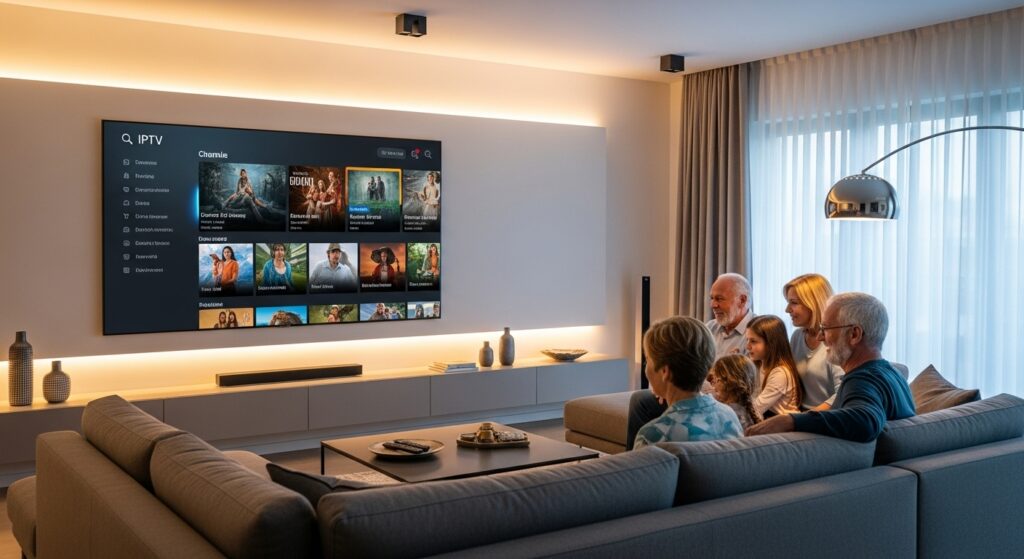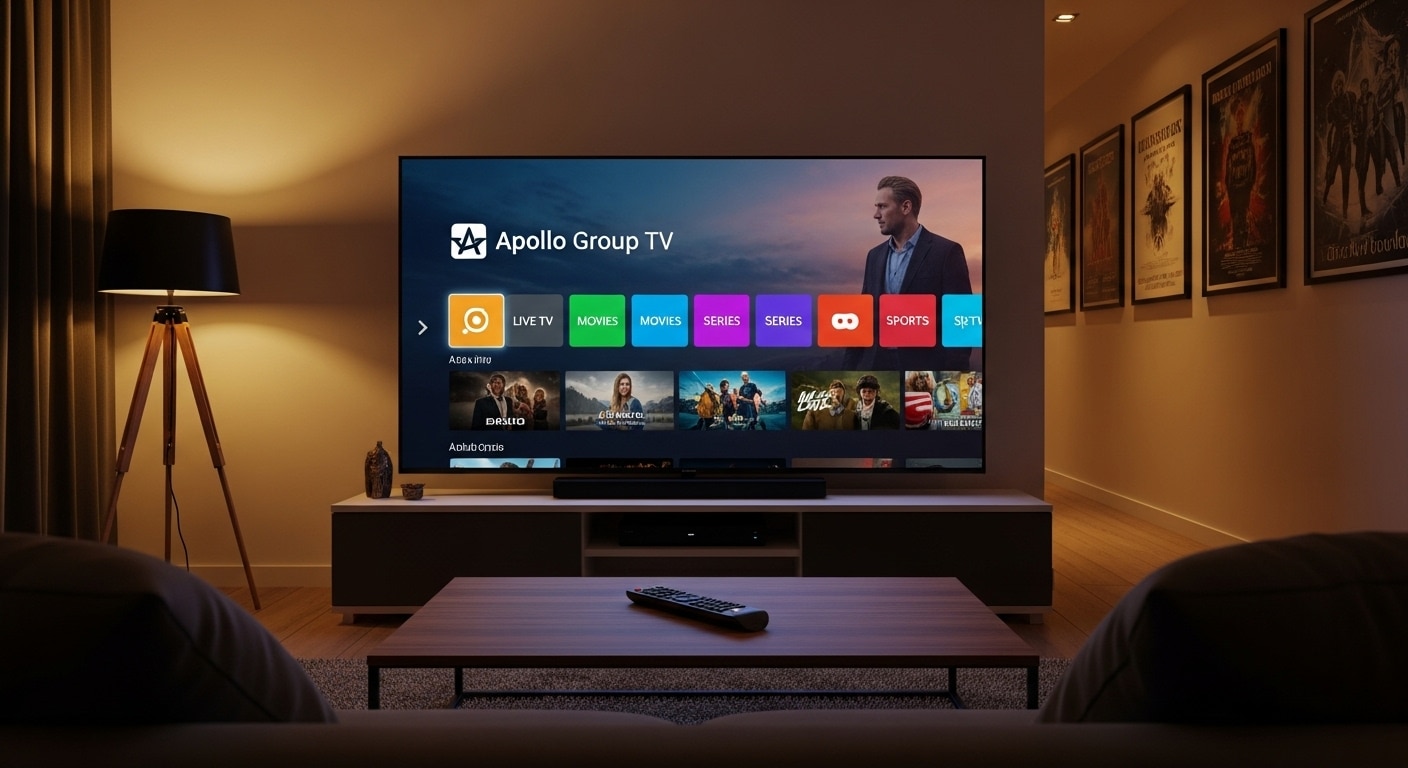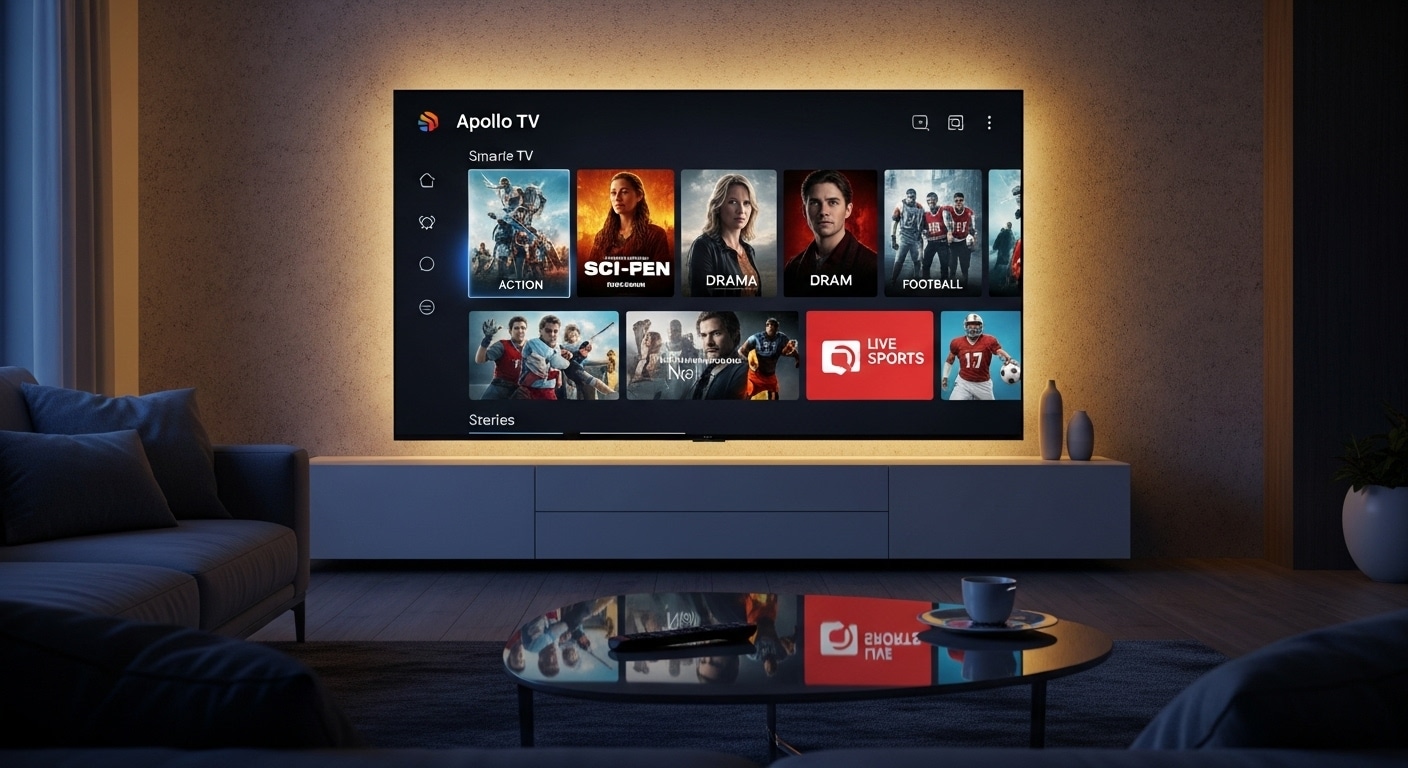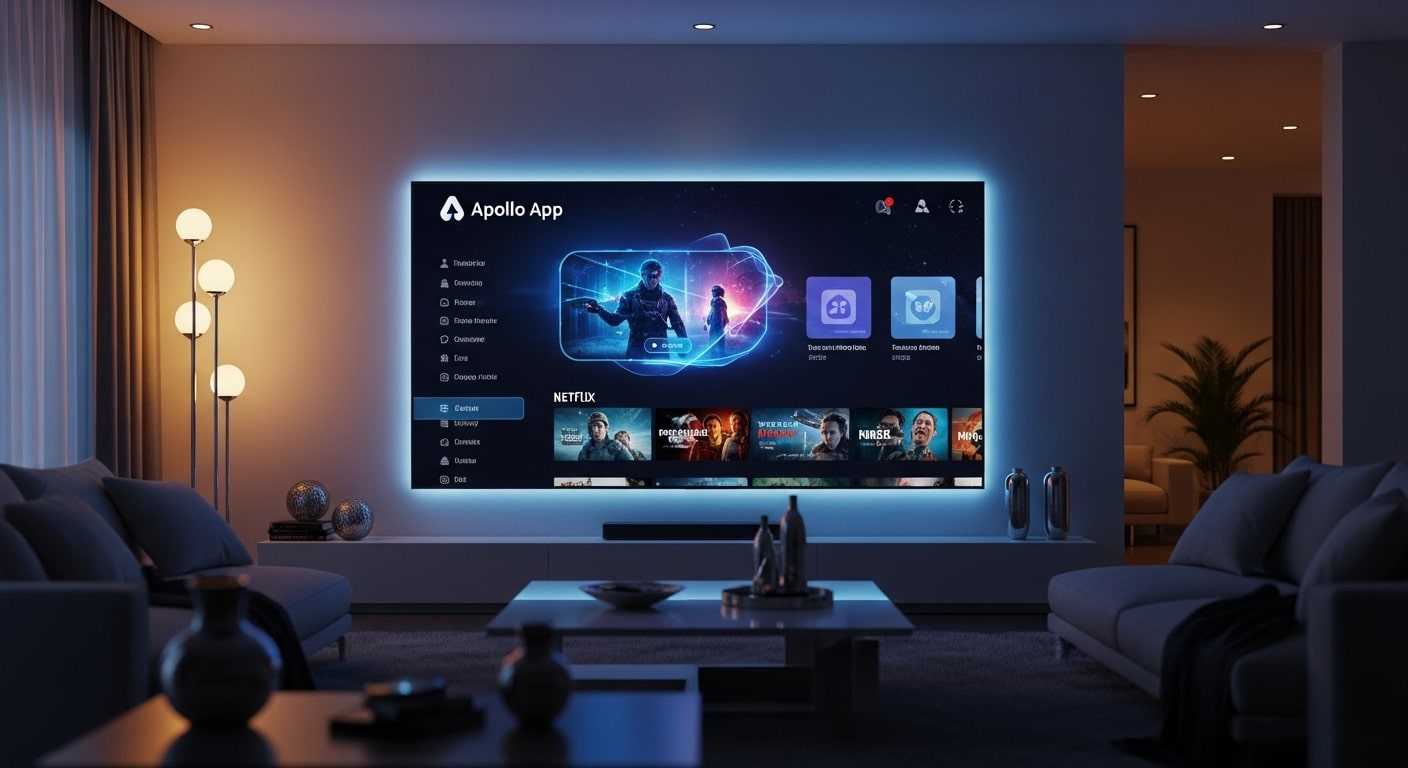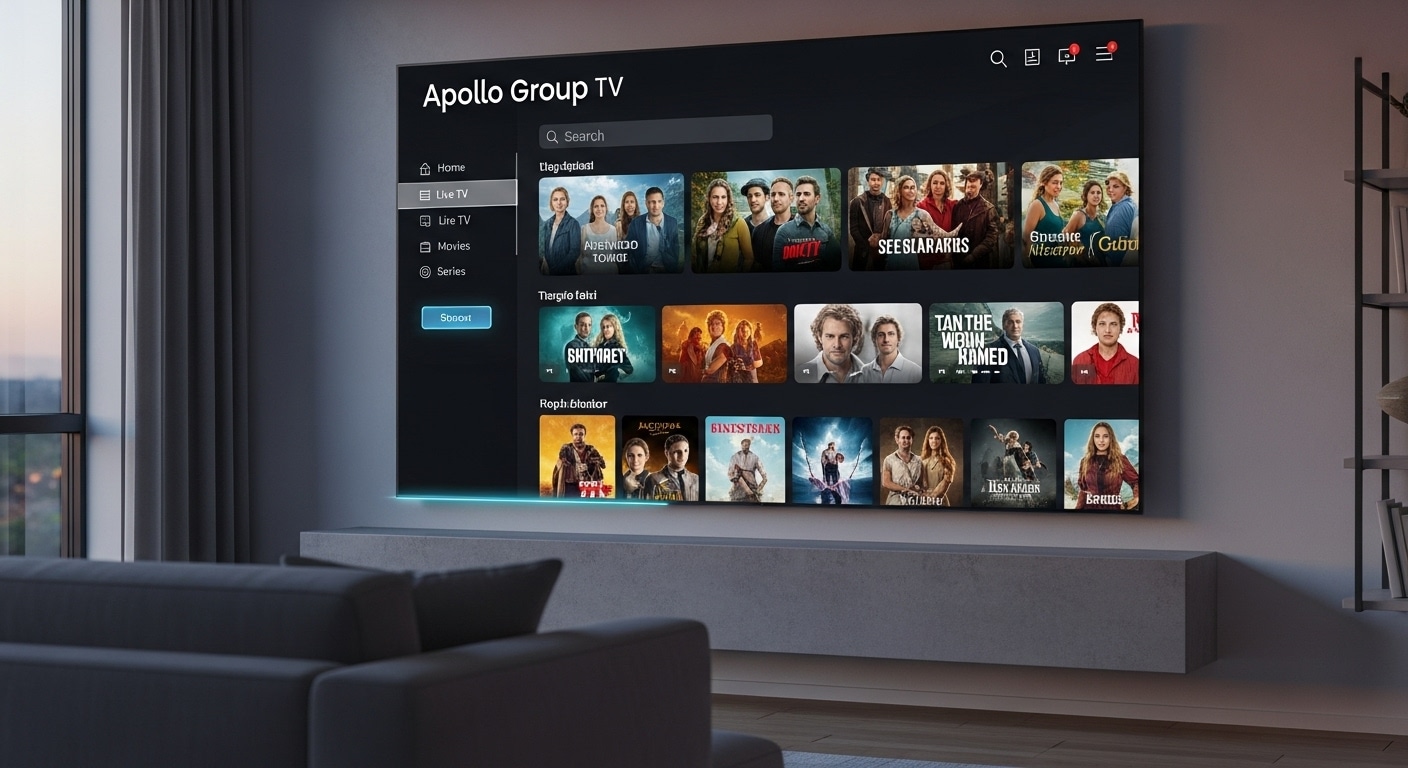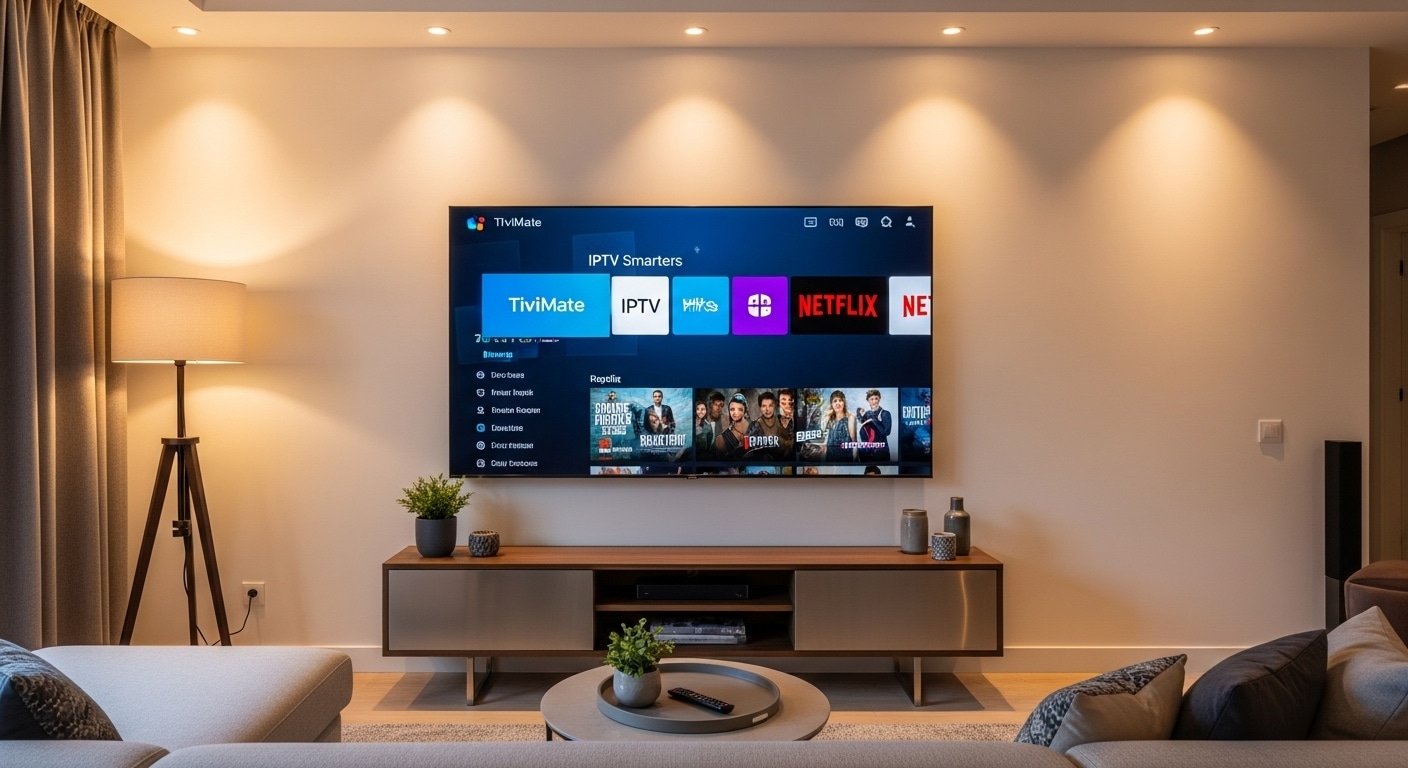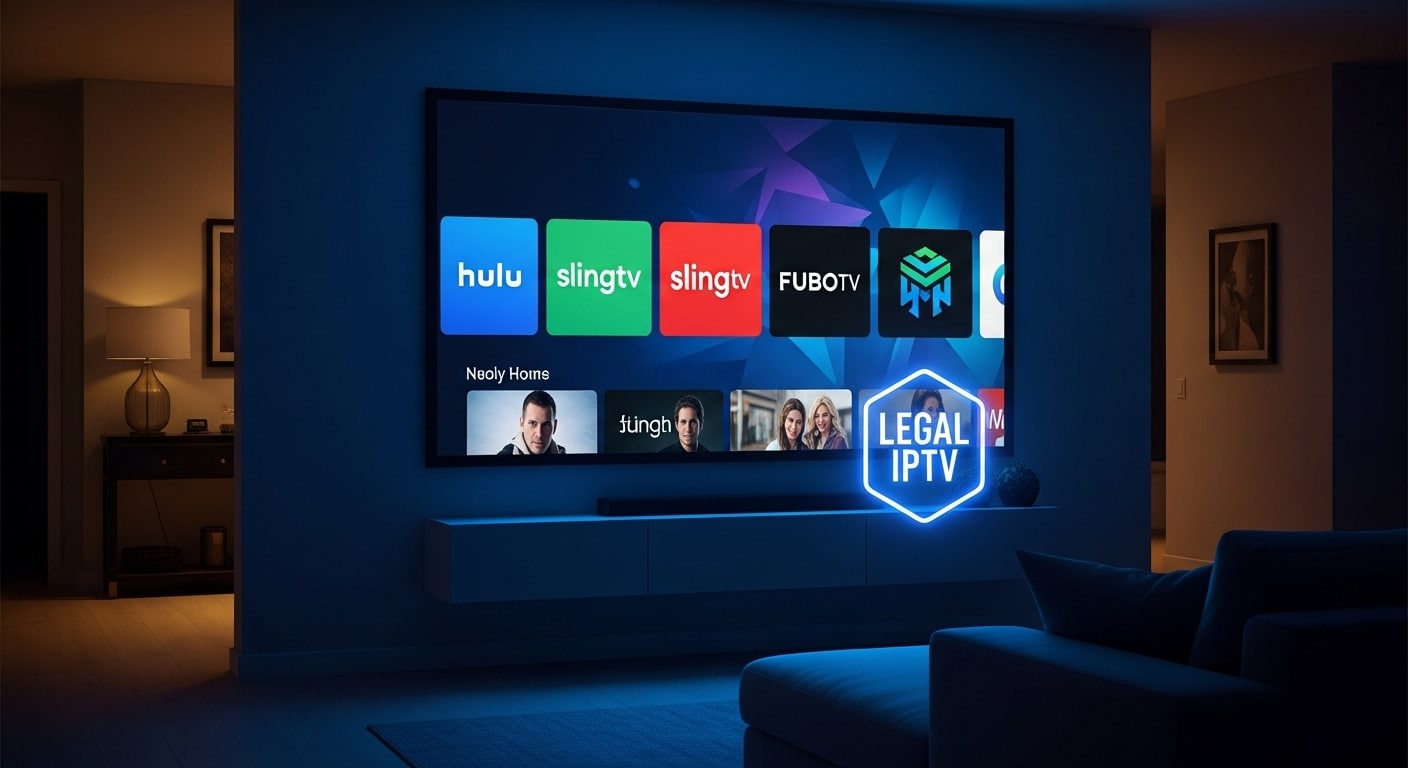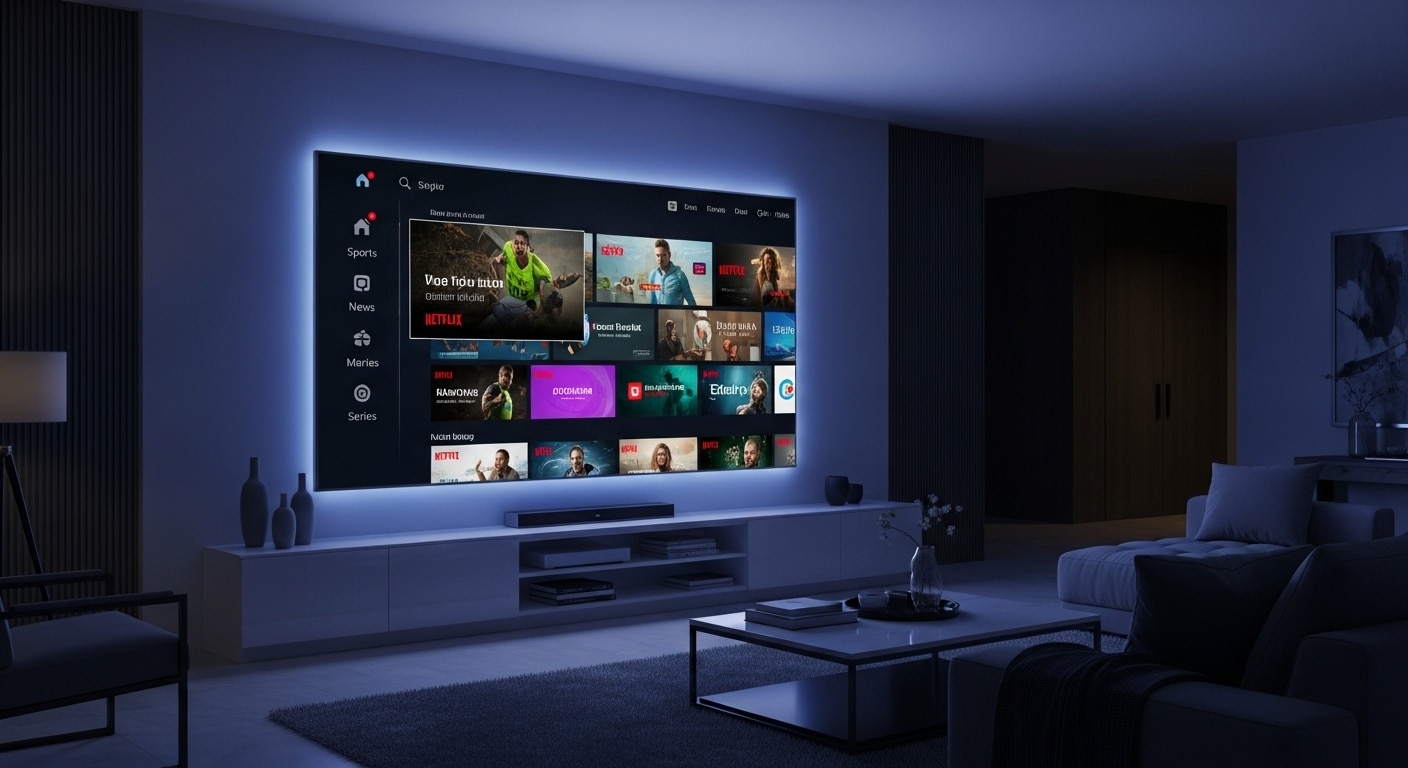Are you wondering what IPTV TV means and how it differs from regular cable or streaming services? Understanding what is IPTV TV starts with a simple idea: it is television delivered through the internet instead of traditional broadcast methods. The full term is Internet Protocol Television, which means TV content is transmitted using the same technology that powers your online browsing, streaming, and communication.
Unlike cable or satellite, which send signals through physical lines or airwaves, IPTV TV uses an internet connection to deliver channels, movies, and shows directly to your device. This allows users to watch live TV, access Video on Demand, and even record programs through an interactive and personalized interface.
In this guide, you will learn exactly what is IPTV TV, how it works, what equipment you need, and how it compares to other viewing options such as cable and OTT streaming platforms like Netflix or Hulu. By the end, you will have a clear understanding of how this technology transforms the way television is delivered, making it smarter, faster, and more flexible for modern viewers.
Table of Contents
IPTV vs. OTT Streaming: Understanding the Key Difference
To truly understand what is IPTV TV, it helps to compare it with OTT streaming services such as Netflix, Hulu, or Disney+. While both deliver video content over the internet, the main difference lies in how that content reaches your screen. IPTV TV operates through a managed network provided by a telecom company or internet service provider, which guarantees quality and stability. OTT, short for Over-The-Top, delivers content through the open internet, meaning performance depends on your connection speed and network congestion.
In IPTV TV, a managed private network ensures consistent video quality, making it ideal for live sports and high-definition broadcasting. The signal travels through dedicated servers that control bandwidth and maintain synchronization. OTT platforms, on the other hand, rely on public servers where multiple users compete for bandwidth, which can cause buffering or drops in quality.
| Feature | IPTV TV | OTT Streaming |
|---|---|---|
| Network Type | Managed private network | Public internet |
| Quality of Service (QoS) | High and stable | Variable, depends on connection |
| Device Requirements | Set-top box or smart device | Any device with app access |
| Control and Management | ISP-managed | User-controlled |
| Examples | AT&T U-verse, Verizon Fios | Netflix, Hulu, Disney+ |
When analyzing what is IPTV TV, it becomes clear that IPTV provides a more controlled and reliable experience, while OTT focuses on accessibility and convenience. IPTV is often offered by telecommunications companies as part of a bundled service, combining television, internet, and phone lines. OTT streaming is independent, allowing users to subscribe or cancel anytime.
Both options deliver entertainment digitally, but IPTV TV has the advantage of guaranteed performance and minimal interruptions. This difference makes it the preferred solution for viewers who want broadcast-quality content and live TV reliability without depending on third-party streaming servers. Understanding this comparison is the first step to recognizing how what is IPTV TV stands apart from regular internet-based viewing services.
IPTV vs. Traditional Cable and Satellite
When exploring what is IPTV TV, it is important to understand how it differs from traditional cable and satellite television. The main distinction lies in how the signal is delivered. Cable and satellite use physical wires or radio waves to transmit a one-way broadcast signal to viewers, while IPTV TV uses internet protocol technology to send data packets through an online connection. This allows for two-way communication, meaning viewers can interact with the service by pausing, rewinding, or watching programs on demand.
Traditional cable or satellite television operates on fixed schedules, offering limited flexibility. In contrast, IPTV TV gives viewers total control over when and how they watch content. Instead of waiting for a program to air, users can instantly stream movies or shows from a vast library of Video on Demand (VOD) options. This makes IPTV TV a much more dynamic and personalized experience compared to conventional broadcasting.
Another difference between IPTV TV and traditional services is infrastructure. Cable television requires coaxial cables, and satellite TV depends on an outdoor dish to receive signals. IPTV only requires a stable broadband internet connection and a compatible device such as a Smart TV, set-top box, or computer. As a result, IPTV is easier to install, offers higher resolution, and provides additional interactive features like electronic program guides (EPG) and catch-up TV.
| Feature | IPTV TV | Cable/Satellite TV |
|---|---|---|
| Signal Delivery | Internet-based data packets | Broadcast or satellite signal |
| Interaction | Two-way communication | One-way broadcast |
| Content Type | Live TV, VOD, Time-Shifted | Fixed schedule programs |
| Required Equipment | Internet connection, set-top box | Cable line or satellite dish |
| Flexibility | On-demand and interactive | Limited control over content |
By comparing these differences, the benefits of what is IPTV TV become clear. IPTV’s use of internet protocol allows for superior flexibility, better picture quality, and enhanced user control. It eliminates the restrictions of traditional broadcasting, paving the way for a modern viewing experience tailored to individual preferences. Understanding this comparison is essential to fully grasp what is IPTV TV and why it is rapidly replacing older television technologies.
How Does IPTV Work? The Simple Science

To clearly understand what is IPTV TV, it helps to know how the technology actually works. Instead of broadcasting signals through cables or satellites, IPTV TV uses the internet to deliver television content. The process relies on data transfer over an IP (Internet Protocol) network, the same system that powers websites and online communication. This allows users to stream live channels, watch movies on demand, and access digital libraries from any compatible device.
In simple terms, IPTV TV works in a few key steps. When a user selects a channel or video, the request travels through an IPTV server. The server processes the request, retrieves the video data, and sends it back through the internet using IP packets. These packets are then reassembled by the user’s set-top box or smart device, displaying the program instantly on the screen. Because everything happens in real time, the experience feels identical to traditional TV but with far greater flexibility.
The Role of the IPTV Head-End
The head-end is the control center that collects, encodes, and distributes all video content. It receives television signals from various sources, including live broadcasts and on-demand libraries, and prepares them for online transmission. In IPTV TV, this step ensures that every video is compressed, formatted, and delivered in high quality to maintain smooth playback.
Understanding Multicast and Unicast Transmission
Another essential part of what is IPTV TV involves how the data is sent to viewers. Two primary methods are used: multicast and unicast. Multicast is used for live television, where a single stream is distributed to many users at once. This method reduces bandwidth usage and ensures consistent performance during live broadcasts. Unicast, on the other hand, is used for Video on Demand (VOD). In unicast, each viewer receives an individual stream, which allows personalized viewing and playback controls such as pause or rewind.
| Transmission Type | Function | Used For |
|---|---|---|
| Multicast | Sends one stream to multiple users | Live TV |
| Unicast | Sends individual streams to each user | Video on Demand |
By combining these methods, IPTV TV achieves both efficiency and flexibility. Multicast ensures that live events run smoothly, while unicast allows for personalized entertainment on demand. This advanced delivery system is what makes what is IPTV TV a breakthrough in digital broadcasting, offering superior performance, high definition quality, and interactive control over every viewing experience.
Equipment and Requirements: Getting Started with IPTV
Before enjoying the benefits of what is IPTV TV, users need to understand the basic equipment and requirements necessary for smooth performance. Since IPTV TV works through the internet, having the right setup ensures a stable connection, high-quality video, and minimal buffering. Unlike cable or satellite, IPTV does not require complex wiring or installations. Instead, it relies on your home network and a few essential devices.
To start using IPTV TV, you will need:
- A high-speed internet connection with at least 10 Mbps for SD content, 25 Mbps for HD, and 50 Mbps or more for 4K streaming.
- A compatible device such as a Smart TV, Android TV box, set-top box, laptop, or smartphone.
- An IPTV subscription or access to a verified IPTV provider.
- An IPTV player app, like TiviMate or IPTV Smarters, to organize and play channels.
These basic tools form the foundation of what is IPTV TV, allowing users to access thousands of live channels and on-demand movies instantly.
Internet Speed Requirements
Internet speed plays the most critical role in determining the quality of your IPTV TV experience. If your connection is slow or unstable, buffering and lag may occur, disrupting playback. A wired Ethernet connection provides the best stability for live TV channels, while Wi-Fi 6 technology offers fast wireless performance for modern homes. Choosing a reliable internet provider is key to maintaining consistent speeds.
| Content Type | Recommended Speed | Connection Type |
|---|---|---|
| SD Channels | 10 Mbps | Wi-Fi or Ethernet |
| HD Channels | 25 Mbps | Ethernet preferred |
| 4K UHD Streams | 50 Mbps or higher | Wired Ethernet |
Device Setup and Compatibility
One of the advantages of what is IPTV TV is its flexibility with different devices. Whether you use a Smart TV, Firestick, Android box, or even a tablet, you can easily install IPTV applications to start streaming. Set-top boxes are popular because they come preloaded with IPTV interfaces and remote controls, providing a cable-like experience with advanced options such as recording and catch-up TV.
Some devices also support VPN applications, an important feature for maintaining privacy and avoiding ISP throttling. Using a VPN with IPTV TV helps protect user data while ensuring smoother streaming speeds.
By understanding these requirements, anyone can set up what is IPTV TV quickly and enjoy a reliable viewing experience. A fast connection, compatible hardware, and the right IPTV app guarantee high-quality entertainment from anywhere, without the limitations of traditional television systems.
Pros and Cons of IPTV
Understanding what is IPTV TV also means evaluating its advantages and disadvantages. Like any technology, IPTV TV offers major benefits in convenience, flexibility, and performance, but it also comes with a few limitations. Knowing both sides helps users decide if it fits their viewing needs and technical setup.
Pros of IPTV
1. Superior Quality and Reliability
One of the greatest strengths of what is IPTV TV is its high-quality streaming. Because IPTV operates through managed networks, it offers a stable connection with less buffering compared to typical online streaming services. Many providers deliver HD and 4K channels that maintain consistent resolution throughout playback.
2. Interactive Features and Control
Unlike traditional broadcasting, IPTV TV provides interactive tools that enhance the viewing experience. Users can pause, rewind, or replay live shows using features such as Catch-Up TV and Electronic Program Guides (EPG). This level of control makes IPTV more flexible and personalized than cable or satellite television.
3. Vast Content Selection
Another major benefit of what is IPTV TV is the extensive range of content available. IPTV combines live TV, Video on Demand, and time-shifted programs into one system. Viewers can switch from live sports to recorded movies instantly, all from the same platform.
4. Multi-Device Accessibility
With IPTV TV, users are not limited to one screen. It works across Smart TVs, laptops, mobile phones, and tablets. This allows viewers to watch their favorite shows from anywhere with an internet connection, making IPTV ideal for modern digital lifestyles.
5. Integration with Internet Services
Since IPTV TV runs on IP networks, it can integrate seamlessly with other online services like browsing, gaming, or video conferencing. This opens opportunities for bundled solutions from telecom providers, such as packages that include internet, phone, and television under one plan.
Cons of IPTV
1. Dependence on Internet Connection
The main limitation of what is IPTV TV is its full reliance on internet speed and stability. If the network is slow or congested, video quality drops and buffering may occur.
2. Equipment and Setup Requirements
While IPTV is easier to install than cable, it still requires a compatible set-top box or device, along with a strong internet connection. Users who lack technical knowledge may need assistance during the initial setup.
3. Limited Access Outside Network Regions
Some IPTV TV providers restrict content based on geographic location. This can limit access when traveling abroad unless a VPN is used.
4. Subscription and Service Variability
Not all IPTV providers deliver the same quality. The experience depends on the provider’s infrastructure, content licenses, and customer support. Selecting a reputable service is essential for smooth streaming.
By weighing these pros and cons, viewers can better understand what is IPTV TV and decide if it aligns with their preferences. For most users, the benefits of flexibility, quality, and content variety make IPTV a powerful alternative to traditional television, offering modern entertainment with minimal limitations.
The Critical Question: Is IPTV Legal?
When learning what is IPTV TV, one of the most common and important questions users ask is about its legality. The technology itself is completely legal, but the legality depends on where the content comes from. IPTV TV is simply a method of delivering television through internet protocol, and many well-known telecommunications companies use it to provide paid and licensed TV services. The confusion often arises because some unverified IPTV providers distribute copyrighted material without permission, which is illegal.
Legal IPTV TV services such as AT&T U-verse, Verizon Fios, and other licensed providers operate under broadcasting laws and pay for the rights to distribute content. These legitimate services comply with all copyright and transmission regulations, making them completely safe for consumers to use. They deliver high-quality channels, consistent service, and full customer support within a secure and legal framework.
However, unlicensed providers often offer thousands of premium channels at a very low price, which should raise suspicion. Using these unverified IPTV TV services carries risks, including exposure to malware, data theft, or even potential fines if the content violates copyright law. In addition, these unauthorized services are unreliable because they can be taken down without notice, leaving users with lost subscriptions and no recourse.
It is essential to verify whether an IPTV TV provider has the proper broadcasting license. The easiest way to check is by confirming if the service partners with official content distributors or offers support through recognized platforms. Legal providers are transparent about their operations, while illegal ones usually avoid displaying business addresses or customer support details.
Another point to consider is that using a VPN does not make an illegal IPTV TV service legal. A VPN can help protect privacy and prevent ISP throttling, but it does not change the status of unlicensed content. The best and safest choice is to always use verified IPTV providers that respect copyright laws.
Understanding what is IPTV TV also means knowing how to use it responsibly. Choosing licensed services guarantees high-quality streaming, long-term reliability, and peace of mind. By avoiding unverified sources, users can enjoy all the advantages of IPTV while staying within legal and secure boundaries.
Conclusion and Future Outlook
After exploring every aspect of what is IPTV TV, it becomes clear that this technology represents the future of modern broadcasting. IPTV TV changes how viewers access entertainment by delivering content through the internet instead of relying on cable or satellite signals. Its flexibility, quality, and interactive features make it a preferred choice for both individuals and households seeking a smarter and more personalized way to watch television.
The biggest advantage of what is IPTV TV lies in its ability to merge live channels, on-demand content, and interactive features into one platform. This combination gives users complete control over what they watch and when they watch it. With support for 4K resolution, multi-device compatibility, and enhanced connectivity, IPTV continues to evolve as internet speeds and digital infrastructures improve across the world.
The future of what is IPTV TV points toward hybrid systems that combine IPTV and OTT features. Many providers are already developing services that allow users to switch seamlessly between managed IPTV networks and open internet streaming. These innovations will create more stable, faster, and richer viewing experiences while maintaining the convenience that streaming users expect.
As the industry grows, new technologies like artificial intelligence, adaptive bitrate streaming, and cloud-based distribution will further enhance how IPTV TV operates. These advancements will make streaming smoother, reduce buffering, and improve personalization based on viewing habits.
In conclusion, understanding what is IPTV TV is essential for anyone interested in the future of digital entertainment. IPTV has already proven its potential to outperform traditional cable and satellite by offering flexibility, accessibility, and superior quality. With its continuous improvements and integration with other internet technologies, IPTV will continue to shape the next generation of television experiences for users worldwide.
Frequently Asked Questions about IPTV TV
This section answers the most common questions people have when searching what is IPTV TV. These answers will help clarify how the technology works, what is needed to use it, and how it compares to other streaming options.
What does IPTV stand for?
IPTV stands for Internet Protocol Television. It is the full term behind what is IPTV TV, and it refers to the delivery of television content using internet protocols instead of traditional broadcast or satellite signals. This system allows for two-way communication, meaning viewers can stream, pause, or replay programs anytime.
Is IPTV better than OTT streaming?
Both IPTV and OTT streaming rely on the internet, but they function differently. OTT platforms such as Netflix and Hulu use the open internet, while IPTV TV runs through managed networks that guarantee higher stability and quality. For live channels and consistent performance, IPTV is often considered superior.
What are the different types of IPTV services?
There are three main types that define what is IPTV TV:
Live IPTV, which delivers real-time channels like sports and news.
Video on Demand (VOD), where users can access a library of movies and shows.
Time-shifted IPTV, which allows viewers to replay or catch up on previously aired programs.
Q: Why is my IPTV buffering?
Buffering usually happens due to slow internet speeds or server overload. To improve performance, users should check their internet connection, use a wired Ethernet link, and choose reliable IPTV providers. Since what is IPTV TV depends on internet transmission, maintaining strong network stability is crucial for smooth streaming.
What is Middleware in IPTV?
Middleware is the software that connects IPTV servers with user devices. It manages the interface, channel selection, and content delivery process. Understanding Middleware is essential to grasp what is IPTV TV, because it ensures smooth communication between the IPTV system and the viewer’s device.
What internet speed is required for IPTV?
To enjoy high-quality IPTV TV, a minimum of 10 Mbps is needed for standard definition, 25 Mbps for HD, and 50 Mbps or more for 4K streaming. A stable connection is more important than just high speed, as interruptions in bandwidth can cause playback issues.
These questions provide a practical summary of what is IPTV TV, helping readers understand how it functions and what they need for a seamless experience. By knowing the basics, users can confidently choose legitimate providers, set up their systems properly, and enjoy modern television with clarity and control.

